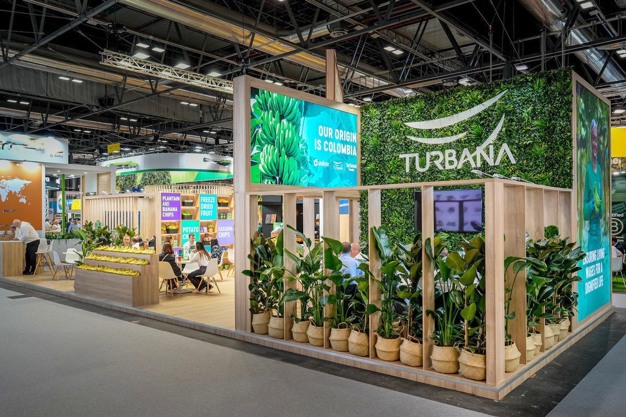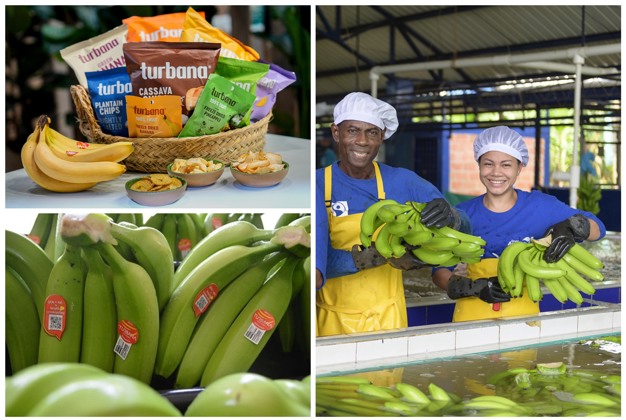Uniban, Colombia's largest banana and plantain exporter, has taken a big strategic step by setting up a commercial hub in Spain with the aim of consolidating its presence in Europe. This move has been made in the framework of the company's expansion strategy, which seeks to strengthen its Turbana Foods brand and capitalize on opportunities in the Spanish and European markets.
The geographical location in the Urabá region of Colombia offers a competitive advantage in terms of food safety. Unlike other major banana producers, such as the Philippines, Guatemala or Costa Rica, which are always facing the risk of hurricanes and typhoons, the Urabá area has been free of such natural phenomena for more than 130 years. "They have never hit Urabá," says Manuel Laborde, CEO of Uniban, which can guarantee a constant supply of bananas. This climatic stability, together with the proximity of the production areas to the port, allows Uniban to export its fruit without the logistical hurdles often faced by other producing regions.
Founded in 1966, Uniban has the entire banana value chain, from production to export, under control. With an annual production of 40 million boxes, Uniban exports 90% of its bananas to Europe, while plantains, another of its key products, are mainly intended for the United States.
"One of our strengths is that we manage 17,500 hectares of bananas, out of which only 3,500 are ours, but we work with 2,500 small producers, whom we advise and finance," says Laborde. This vertical integration, which includes its own box and plastic factory, allows the company to control quality and guarantee that the product arrives in optimal conditions to its destinations.

Some of the main companies that make up Uniban are Turbana Corporation, a U.S. subsidiary based in Miami, responsible for the distribution of bananas and other fresh produce in the U.S. market; Proban, acquired in 2006, which is the second largest banana company in Colombia and helped strengthen its position in the banana sector; and TMA (Antwerp Maritime Terminal), a subsidiary in Belgium, responsible for marketing and distribution in Europe, mainly in markets such as Germany, Italy and Spain. It also has a corrugated cardboard factory, which allows them to produce their own packaging for bananas, avocados and other products, and a plastic factory for the packaging of banana bunches, ensuring quality control throughout the entire packaging process.
Uniban also maintains a strategic alliance with Fyffes, an Irish fruit company, through a Joint Venture in the United States, thereby strengthening its presence in international markets.
"Uniban has been a pioneer in the implementation of sustainable practices in the Urabá region, contributing to the transformation of an area that was previously nothing but jungle. Over the years, the company has built infrastructure such as roads, hospitals and schools for the benefit of the local community. It is also building a new $800 million port, the most modern on the Colombian Caribbean coast, to facilitate the transport of products," says Laborde.

"Although the price of bananas has dropped by 25% in markets such as the UK since 1999, we remain committed to guaranteeing living wages for our workers," says Laborde. In partnership with European retailers, Uniban has implemented the first living wage compensation program, giving 600,000 Euro to workers in areas where the wage did not meet the standard.
The company is working on new technologies to extend the shelf life of bananas during transport and improve the consumer experience at destination. Moreover, Laborde says there is potential for growth for other products, such as avocados and cassava. "We want to continue enabling agricultural value chains in Colombia and other countries, connecting them with consumers in the first world in a sustainable way," says Laborde.
For more information:
Manuel Laborde
Uniban
Tel.: +57 301 518 5355
[email protected]
www.uniban.com
